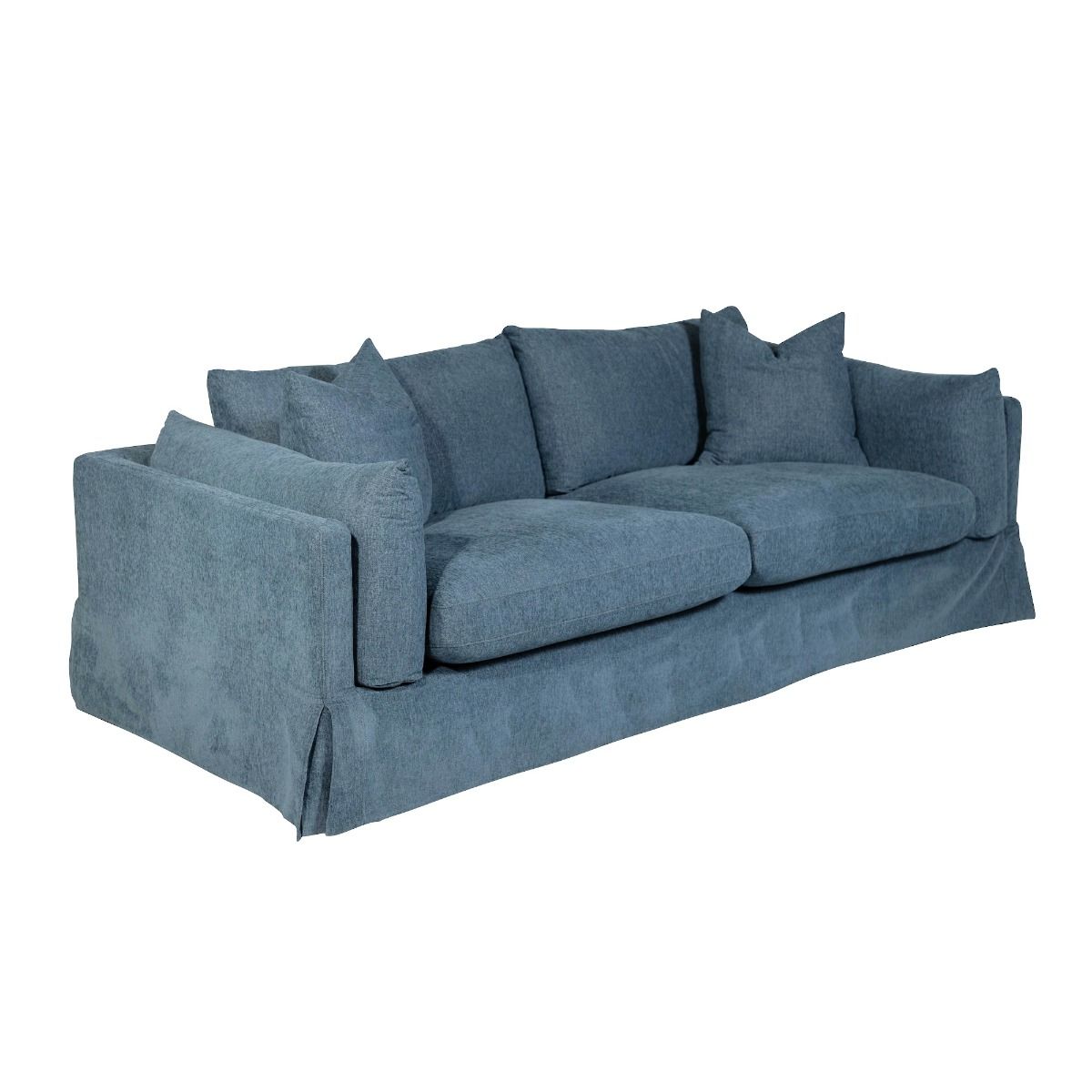Spotlight On: E-Decorating
Author: Georgia Madden Date Posted:19 June 2018
Online decorating is affordable and convenient – and could be just the ticket for those looking to decorate on a budget
“Homeowners can achieve a professionally designed home for a fraction of the cost of a traditional decorator. It also suits those who are time poor as they don’t need to work around site visits,” says Smythe.
Broadly speaking, the process is:
- Start by filling in a questionnaire or quiz on the e-decorator’s website.
- Send through photographs and the dimensions of the room you want decorated, plus any inspiration photographs of spaces or decorating looks you love (this helps the e-decorator pinpoint your style).
- At this point, companies with multiple interior designers, decorators and stylists on their books, such as Designbx, will send you concept boards from different pros to choose from.
- You’ll receive a mood board, shopping list and floor plan of the finished room.
- Depending on the e-decorator’s set-up, you either order furniture pieces through their website or buy it yourself from various retailers.
- Some e-decorators also offer an installation service and post-project support.
“It requires a bit more involvement from the client [than traditional interior decorating] as I’m not physically there to measure or check things in person,” says interior stylist Emma Blomfield. “An e-decorating client needs to be willing to roll up their sleeves and do some additional work rather than just handing the entire project over.
“But it’s great for homeowners who want to feel as though they are part of the process as there’s a lot of collaboration on an e-decorating project,” she says.
There are other benefits too, says Carding: “Our designers compete for your project so you get to see a bunch of amazing – and very different – inspiration design boards”.
Anything from a single room or an open-plan kitchen-living-diner to a whole home, depending on the e-decorator’s skills.
When selecting a virtual decorator, make sure they offer the skills you require – this starts by understanding the difference between an interior designer, decorator and stylist. “A fully qualified interior designer creates functional spaces within a building and is usually engaged at the inception of building work and structural changes,” says Smythe. “Interior decorators and stylists don’t move walls or make structural changes. They are usually engaged to improve an existing space, such as refreshing a room with new furniture, finishes and accessories.”
“Do your research, check out designers’ portfolios and note down which projects you like best so you can clearly articulate your design style and what you want to achieve,” says Blomfield. “Ask questions and speak to the designer over the phone or in person to see if there’s a rapport.”
“Platforms such as Houzz and Google are a great way to find an e-designer,” adds Smythe. “Look at the images on the website, and read testimonials and reviews.”
“Completing the style quiz is a great place to start because it gives me an idea which interior design style suits your personality and lifestyle,” says Carding.
“The more images and measurements you can provide me with the better,” adds Blomfield.
- Emma Blomfield charges $349 for a small room, $449 for a bedroom, and $599 for a living room. The fee includes a mood board, floor plan with furniture layout, and a shopping list.
- Designbx charges between $299-$499 per room, depending on size and scale of the project. The fee includes mood boards, a floor plan, shopping list and set-up guide.
- Amanda Smythe charges between $299 and $499 per room, depending on the size and scale of the project. She offers discounts for three or more rooms.
Did you find this story useful? Tell us in the Comments section below. And don’t forget to like, share or save this story. Join the conversation.
More
Find an interior designer or decorator near you
<div id="hzroot3562599" style="width:300px;text-align:center;font-size:12px;padding:0;border:0;margin:0;"><div style="font-size:14px;margin-bottom:3px;"><a href="https://www.houzz.com.au/jsGalleryWidget/gallery/108474989/new_window=no/title_on=no/width=300" target="_blank">Spotlight On: E-Decorating</a></div><div style="padding:0;margin:0;border:0;margin-bottom:3px;"><iframe data-hzvt="MjAyMDAyMTI6ZnVuY3Rpb24oKSB7CiAgICBbbmF0aXZlIGNvZGVdCn0=" name="HouzzWidget1793922" id="HouzzWidget1793922" border=0 frameborder="0" SCROLLING=NO style="border:0 none;width:300px;height:275px;" src="https://www.houzz.com.au/jsGalleryWidget/gallery/108474989/new_window=no/title_on=no/width=300"></iframe></div></div>


















“It is an online alternative to traditional, face-to-face interior design,” explains Emily Carding co-founder at e-decorating firm Designbx. “At Designbx we’ve made it a 24/7 service that you can access anywhere, anytime and for a fraction of the price of traditional interior design.” It’s fast and convenient too, adds Amanda Smythe of Amanda Smythe Design: “Instead of onsite visits, all communication is done via email, phone or Skype.”